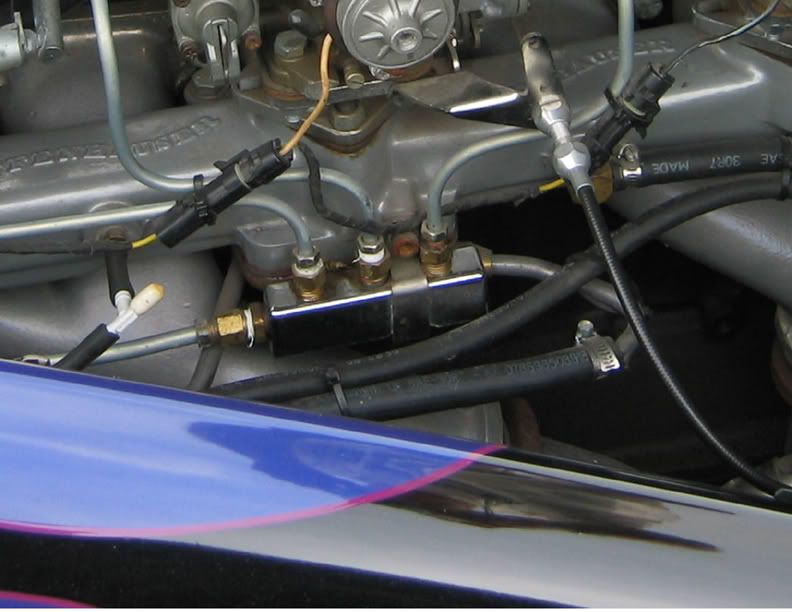When I installed my 292, I asked a lot of questions about it's set up. I had been living in Wisconsin and did drive when the weather was in the 40's and 50's. Tom Langdon @ Stovebolt Engineering was the individual that I was referred to as I purchased a lot of the parts from him.
After several calls to Tom, I felt fairly confident that the way he was telling me to set up my car was right for my area. He prefered the manifold heated intake for a number of reasons. The best reason was for the above mentioned "atomization" of fuel. He also suggested that with 3 Holley/Webers on an Offey intake, it would improve the idle, fuel burn and mileage. He said that if I didn't like the look or set up, it's an easy take off item. Well it worked wonderfully and I have never had a problem with idleling, low or high speed misses and the mileage was pretty good too.
After meeting Tom and talking to him, he had explained that he headed the 6 cylinder research division at General Motors for a number of years. Now who can dismiss those credentials!
Here's a close up of my Heated Intake set-up.
Make your own decisions but I would use a heated intake in any part of the country. What does it hurt?
RapRap
1940 ChoppedChevyCoupe

